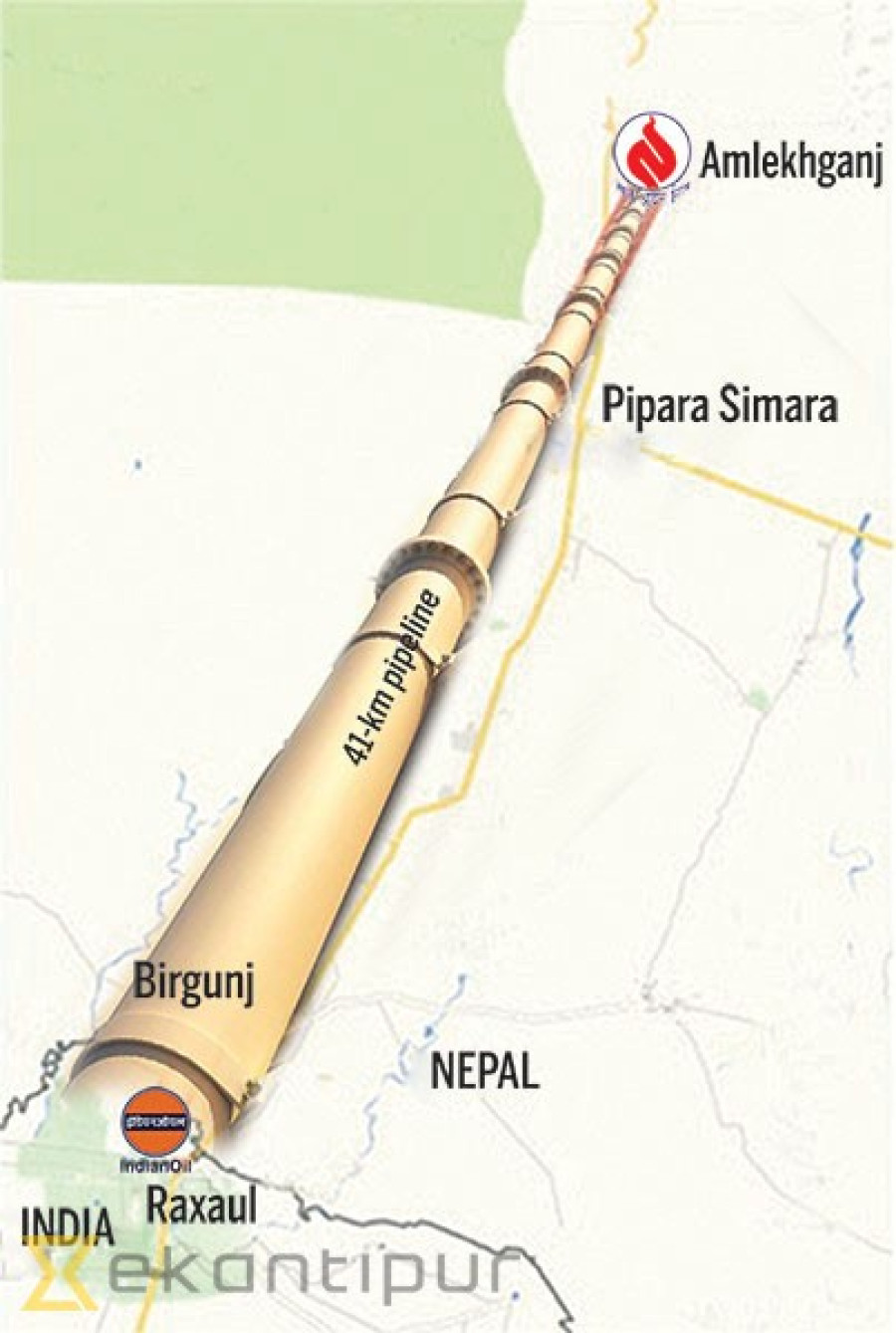Money
Cross-border Nepal-India petroleum pipeline project back on track
Nepal Oil Corporation has expedited construction of the cross-border Nepal-India petroleum pipeline project which had stalled due to a forest clearance issue.
Nepal Oil Corporation has expedited construction of the cross-border Nepal-India petroleum pipeline project which had stalled due to a forest clearance issue. The state owned corporation has received the Cabinet’s go-ahead to cut the trees that lie along the 9 kilometre Pathlaiya-Amlekhgunj section of the project.
The Cabinet meeting on January 17 decided to allow the project to cut down around 80,000 trees in the section of Pathlaiya-Amlekhgunj forest route. Of the total trees set to be cut down, 6,533 are big trees, said an official of the corporation.
Following the go-ahead, the Timber Corporation of Nepal—which has been assigned with the task of cutting the trees—issued a 30-day notice last Tuesday.
The Nepal-India oil pipeline is 69 km long, stretching from Amlekhgunj in Nepal to Motihari in India. Pipe laying works on 9 km stretch, out of 36.2-km of the petroleum pipeline—from Raxaul border to Amlekhgunj—in Nepal had stalled due to the forest clearance issue.
“If the project is expedited, it can be completed within two months,” said the official. Initially, the Nepal Oil Corporation (NOC) had targeted to begin commercial operation of the pipeline by March. “However, due to the delay in forest clearance, it has been pushed back by a month to April-end.”
The pipeline project started on March 9 last year. The ground-breaking of the pipeline project took more than two decades after the first discussion on the project was held between Nepal and India.
The Indian Oil Corporation had proposed constructing a cross-border pipeline in 1995 and signed a memorandum of understanding with NOC at the junior executive level a year later. In 2004, the two sides upgraded the agreement to the chief executive level. However, due to a number of legal hurdles, the project failed to take off.
Indian construction company Likhiya Infrastructures has been awarded the pipeline construction project with the completion deadline of 15 months. Simlesh Limited of Maharashtra, India, is manufacturing the steel pipes being used in the project.
Moti Prabha Infra Tech, another Indian company based in Faridabad, has been upgrading four vertical fuel storage tanks at the Amlekhgunj depot of NOC. These tanks have a combined storage capacity of 13,400 kilolitres. Two of the tanks can hold 3,900 kilolitres each and the other two tanks can hold 1,500 kilolitres and 4,100 kilolitres respectively.
Indian Oil Corporation has been funding the major cost of the petroleum pipeline construction. NOC is bearing the cost of land compensation. The design throughput capacity of the pipeline is 2 million tonnes per annum. The pipeline project is expected to cost Rs4.4 billion.
The pipeline will transport petrol, diesel and kerosene. Under the first phase of the project, a pipeline will be laid from Raxaul to Amlekhgunj. In the second phase, it will be extended to Kathmandu.
The construction of the pipeline is expected to help ensure regular supply of petroleum products to Nepal besides reducing transportation costs and eliminating the vagaries of transportation by tanker trucks. The country’s fuel import bill surged 43.1 percent in fiscal 2017-18 to Rs170.13 billion.




 17.15°C Kathmandu
17.15°C Kathmandu












